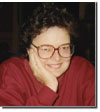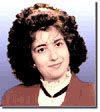

References & Resources
Acknowledgements & Credits
Links to other web sites
References & Resources
ATKINSON, Alan
The Europeans in Australia, vol. 1
Oxford University Press 1997
Examines the forces leading up to the English decision to colonize Australia in 1787 and explores the ways in which the European ideas about spirituality, self and the land influenced the development of their settlement. An original perspective on the early history of Australia.
BOARDMAN, Alan & HARVEY, Roland
The First Fleet
Fontana Picture Lions 1982
A childrens picture book telling the story of John Hudson, the youngest convict on the First Fleet.
CHAPMAN, Don
1788 The People of the First Fleet
Cassel 1981
This book adds to the data in the database as it includes officers, sailors, wives & children and gives information about their lives in the colony.
COBLEY, John
The Crimes of the First Fleet Convicts
Angus & Robertson, 1970
A complete list of 778 convicts of the First Fleet plus excerpts from transcripts of their trials. Cobley is one of the major sources of the data in this database.
COBLEY, John
Sydney Cove 1788
Sydney Cove 1789-1790
Sydney Cove 1791-1792
Sydney Cove 1793-1795
Angus & Robertson 1988, 1989, 1991, 1995
A day by day account of life in the new settlement using extracts from the diaries, journals, and documents of the time. Use the excellent index to find references to the progress of many of the First Fleet convicts after their arrival.
COURTENAY, Bryce
The Potato Factory
Penguin, Australia 1998
An historically accurate novel about convict life in Tasmania and the life of crime in London which lead Mary and her partner to be transported.
CURRY, C.H.
The Transportation, Escape and Pardoning of Mary Bryant
Halstead Press, Sydney, 1983
A small book describing the adventures of First Fleet convict Mary Braund who married William Bryant on arrival in New South Wales. Using quotes from journals and records of the time, the author provides an insight into the convict's hardships and the frustrations of administrators of the new colony.
DANIELS, Kay
Convict Women
Allen & Unwin, 1998
Beginning with a chapter describing the extraordinary life of convict Maria Risley/Reibey who married Edward Lord, one of the wealthiest men in Van Diemen's Land, the book analyses how historians end up with multiple differing portraits working from fragmentary evidence and their own preconceptions and cultural frameworks.
DARK, Eleanor
The Timeless Land
Storm of Time
No Barrier
Angus and Robertson Sydney 1941, 1948, 1953 reprinted in paperback
Although this trilogy of novels is based on a fictional family, it is a solidly researched account of life in the early years of settlement. So well are they written it is often hard to remember that these are novels, not biographies.
DURAND, John
The Odyssey of Mary B: a true tale
Puzzlebox Press, Wisconsin, USA 2005
www.puzzleboxpress.com
Mary Bryant (Braund) is one of my favourite convicts and her story deserves to be told, more so in some ways than many of the officials of the colony. So far I have only ever read her story in a children's book and it was mentioned in The Fatal Shore. A labour of love, which John wrote 20 years ago but only recently published, this book is an illuminating account of the particular life women were forced to lead under the conditions imposed by goal, hulk, ship and fledgling colony.
GILLEN, Mollie
The Founders of Australia
Library of Australian History, Sydney, 1989
A comprehensive list and description of all the convicts, military and seamen who sailed onthe First Fleet including information about their fate in Australia. Gillen is one of the major sources of data for this database.
HUGHES, Robert
The Fatal Shore
Pan Books & Collins, 1988
A comprehensive and compelling analysis of the convict history of Australia and how this impacts life today. Excellent individual chapters on Norfolk Island, Tasmania, bushrangers, women, homosexuality, and Aborigines.
LEVY, J.S. & BERGMAN, J.F.
Australian Genesis: Jewish Convicts & Settlers 1788-1850
Rigby, Melbourne, 1974
The early chapters provide another perspective on the convicts arriving on the First Fleet, particularly the excellent chapter on Esther Abrahams, "Australia's Unofficial First Lady". Her story is an insight into the type of life faced by women in the new colony and how their initiative and courage founded white Australia.
MCCULLOUGH, Colleen
Morgan's Run
Century, 2000
A novel, the first in a probable series by the author of Thorn Birds, about her ancestor Richard Morgan, a First Fleeter. In the database, you'll recognise the names of all those he came into contact with on his journey and on Norfolk Island in later years.
NICHOLAS, Stephen
Convict Workers: Reinterpreting Australia's Past
Cambridge University Press, 1988, Melbourne
This reinterpretation of Australia's convict past is based on an analysis of the detailed records of 20,000 male and female convicts transported to Australia. After the initial hard years of the settlement, transportation to Australia meant a better diet, housing, hours of labor and welfare for convicts than that received by free men and women in England.
ROBSON, Lloyd
The Convict Settlers of Australia
Melbourne University Press, 1973
A reference text containing numerous tables analysing a random sample of 6000 of the 116,000 convicts who were transported to Australia.
STUART, Vivien
The Traitors
The Australians Series Book 3
Futura McDonald, Sydney 1982
This book relates the story of an eleven year old girl, Mary Reiby, who lived in London and was transported to Australia as an assigned convict for horse stealing. She marries a captain and the family built Entally House in Tasmania.
TENCH, Watkin
Sydney's First Four Years
Library of Australian History, Sydney 1979
Highly readable account of the earliest years through the eyes of one of the military officers sent on the First Fleet. It is alive with observations on the people and the environment in which they found themselves.
WILSON, Louise
Robert Forrester, First Fleeter
South Melbourne, 2009
http://www.louisewilson.com.au/robert_forrester.html
A tale of one convict's life: more than 700 convicts arrived with the First Fleet but there are very few books about their lives as individuals. Most only contain lists of descendants with very little biographical material. It is a challenge to write about these earliest European settlers, because most convicts left little documented evidence of their lives. This book resulted from many months of 'deep delving' into the NSW archival records, in an effort to reveal Robert Forrester's character. But while the book tells the story of one man, it is intended for general readership.
YARWOOD, A.T.
Growing Up in the First Fleet
Kangaroo Press, 1983
In 1787 Jenny Jones and her convict mother, Elizabeth Osborne, boarded the transport ship Lady Penrhyn. This childrenžs book describes in detail life at sea, the long visit to Rio de Janiero and Cape Town and the problems of the first settlement.
[Top]
Acknowledgements & Credits
Electronic First Fleets have a (relatively) long history. The first database was developed by Sandra Wills, based on John Cobley's book The Crimes of the First Fleet Convicts, and published in 1981 on TASNET, a statewide Digital timesharing network for Tasmanian schools. A year later the search engine was re-programmed by Phil Geeves for 48K Apple microcomputers. The 5 inch floppy disk together with curriculum materials by Cheryl Prokopanko, was distributed free to all Australian schools by the federal Department of Industry & Technology in 1982.
Versions using the same data were subsequently created for just about every microcomputer used by Australian schools. For a Commodore 64 version published by Edsoft in 1986, Sandra substantially improved both the original data set and the curriculum materials as well as providing a more user friendly search engine. However versions by other people appearing after 1986, for example for the Macintosh, still used the original data set, and unfortunately a number of errors in the data were introduced in the various conversion processes.
This 1998 version marks a milestone in its history. It is back online after 16 years on stand-alone PCs, but the online environment changed since 1980. Powerful web browsers incorporating sophisticated free text search engines make the earlier versions seem laughable. The data is now more readable using real words instead of using the abbreviations and codes required previously to squeeze it into a mere 48K. Additional rich data about each individual convict has been added after thorough research by Adair Bunnett, based on Mollie Gillen's wonderful research. The search engine provides incredible access but if you need more power, the data set can be downloaded from this site into your own PC based file management program such as File Maker Pro. Hopefully the materials accompanying the database are also more interesting not only due to the combined efforts of Adair and Sandra but also because of the web's capacity firstly to link you to other relevant sites and secondly to link you in discussion with other people who are researching the First Fleet. It is this last feature which particularly excites us - the potential to build an online community of novice and professional First Fleet researchers. We invite you to contact us via this web site with feedback, additional links, corrections to data, new data, debate about conclusions.
For those of you who share the same surname as Sandra Wills, you might be interested in helping with our research on the Wills Family Tree.
[Top]
Links to Other Web Sites
- The State Library of NSW has a
Family History Site
containing numerous links to other databases and indexes plus a terrific
site on
Joseph Banks
who sailed with Captain Cook on the Endeavour. It contains journals and
letters and provides an insight into the thinking about this country
before the First Fleet was sent to settle Australia.
- Heaps of information and links to other convict sites on this
Murdoch University
web site
- includes a quiz and convict story writing tool.
- A site containing
paintings
of all the
ships of the First Fleet.
- The National Maritime Museum is building a Welcome Wall to honour the 6
million people who have crossed the world to settle in Australia.
- Next time you're in Sydney, visit the
Hyde Park Barracks.
- The Australian Literature
Database: 18th, 19th &
early 20th century Australian texts.
Of relevance to the First Fleet, it contains Banks Journals, Tench's
journal, the novel by Marcus Clarke "For the Term of His Natural Life",
poems by Henry Lawson and Banjo Patterson, Rev Richard Johnston's sermon
to the colonies, A Dictionary of Australian Words & Terms, Charles
Rowcroft's Journal of a Free Settler 1816, Mary Vidal's novel The
Convict Laundress, Thomas Watling's Letters from an Exile at Botany Bay
- check it out
- For some early Australian drawings and paintings look at
State Library of Tasmania's Heritage Collections - search the image database
"convict", "Sydney", "Port Arthur" for example.
- National Archives of Ireland - Transportation Records Database
Irish Convicts transported to Australia, including some free settlers. The records from which the transportation database was compiled (transportation registers and petitions to government for pardon or commutation of sentence) are incomplete. While the collection of convict petitions dates from the beginning of transportation from Ireland to Australia in 1791, all transportation registers compiled before 1836 were destroyed.
- For useful resources about general learning skills, explore the
UniLearning
web site, a constantly improving site developed by the University of Western
Sydney and The University of Melbourne, and recently joined by the University
of Wollongong.
- Look for more books & resources on Australian History by searching the
catalogue of the
University of Wollongong Library
- Library of Australian History
PO Box 795
North Sydney 2059
fax: 02 9929 5087
email:grdxxx@ozemail.com.au
Some great books, indexes, lists and CDs available such as Census of NSW 1828 on CD-ROM and The Second Fleet - Britain's Grim Convict Armada of 1790 and "Musters & Lists - New South Wales and Norfolk Island 1800-1802".
[Top]
| University of Wollongong
© Copyright 1999 Last Updated October 2005 email webmaster |




